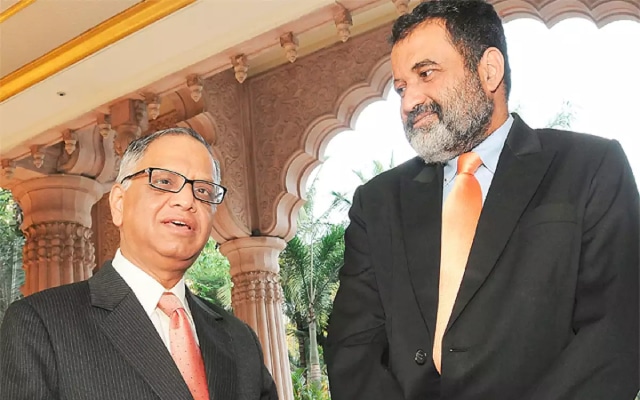Infosys founder Narayana Murthy‘s suggestion that Indian youth should work 70 hours a week to compete with developed economies has ignited discussions on work culture and work-life balance.
Narayana Murthy, the co-founder of Infosys, recently recommended that Indian youth should work for 70 hours a week to enable India to compete with rapidly developing economies, sparking discussions on work culture and work-life balance. Murthy’s advice has raised questions about the nature of work in India, its implications for productivity, the well-being of the workforce, and the role of extended working hours in India’s journey towards becoming an economic powerhouse.
Balancing Productivity and Well-being
While Murthy’s proposal for 70-hour work weeks may resonate with some, others argue that it’s essential to strike a balance between productivity and well-being. Abhishek Desai, the founder of CricHeroes, emphasized that while extended working hours can boost productivity in specific contexts, it is equally vital to focus on work-life balance, employee well-being, and harnessing technology to enhance efficiency.
Desai acknowledged the impressive success of countries like Japan and Germany, known for their strong work cultures. However, he pointed out that these work cultures might not be entirely replicable in the Indian context. Each country has unique factors that shape its work culture, and India needs to consider its own dynamics in the pursuit of economic growth.
Challenging the Hour-Based Measurement of Work
Former BharatPe Co-founder Ashneer Grover raised an important issue in response to Murthy’s statement. He highlighted that work is often measured in hours rather than outcomes, and this hour-based approach can be misleading. Measuring work based on the time spent, rather than the quality and impact of the work, is a challenge that persists in many workplaces.
Grover also addressed the perception that Indian youth are seen as lazy, emphasizing that this stereotype is not the sole factor holding India back from achieving developed status. It’s a more complex issue involving multiple factors, including the country’s work culture, education, and skill development.
Public Reactions and Varied Opinions
Responses to Murthy’s call for 70-hour work weeks have been diverse. Ola CEO Bhavish Aggarwal expressed his agreement with Murthy’s perspective. Aggarwal underscored the importance of the moment, where Indian youth should be willing to put in the hard work required to build in one generation what other countries have developed over many generations.
However, not all reactions have been supportive. Some members of the public questioned the practicality of working such long hours and the impact on work-life balance. While extended work hours may boost productivity, they could also lead to lower efficiency and hinder the achievement of business objectives, especially in the Indian context.
@Iyervval Abhijit pl stop make value judgements, you do not know Infosys nor what they do, some of the biggest, most sophisticated Global cos get their most complex work done by Indy. When you build something comparable, 20b$ revenue,open your mouth, till then pl Shut Up https://t.co/wRpOuiaObq
— Mohandas Pai (@TVMohandasPai) October 27, 2023
The Influence of Culture on Work Productivity
Murthy’s assertion that India’s work productivity is among the lowest in the world highlights the role of culture in shaping work habits. He called for a transformation in India’s culture, advocating for discipline, hard work, and determination as driving forces behind progress. Murthy emphasized that the youth, who constitute a significant portion of India’s population, must embrace these principles to propel the nation forward.
Debate and Exchange of Views
Narayana Murthy’s statement initiated a vibrant exchange of views, both in support and critique of his perspective. This dialogue has brought to the forefront the complexities of work culture in India and the multifaceted nature of productivity. It emphasizes that the pursuit of economic growth requires a nuanced approach, considering various factors such as work-life balance, well-being, and outcome-based measurement of work.
Final Thoughts
Narayana Murthy’s call for Indian youth to work 70 hours a week has provoked thoughtful discussions about work culture and productivity. While some endorse his viewpoint, others argue for a more balanced approach that considers the well-being of the workforce. This debate is a reminder that achieving economic growth is a multifaceted endeavor, influenced by cultural factors and individual well-being.

















